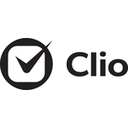Why legal professionals need to consider law firm CRM platforms
If you are starting your own law firm or looking to grow an existing one, choosing a law firm CRM might be what you need to differentiate yourself from the rest of the firms out there. By leveraging the power of technology to manage interactions with clients and prospects, law firm CRMs can help firms improve their efficiency, boost revenue, and deliver better client experiences.
Get all the information you need about the benefits of law firm CRMs, how they work, and what features to look for when choosing a CRM for your law firm.
What is a legal CRM?
A legal CRM, also known as a law firm CRM, is a customer relationship management system specifically designed to assist law firms and legal professionals in their client relationships.
Boasting features and functionalities crafted to help law firms manage their clients, keep track of their cases, and stay on top of their billables and payables, a law firm CRM can boost your efficiency and profitability.
When law firms choose to use a legal CRM, they gain access to the following:
- Case management
- Client management
- Document management
- Billing and invoicing
- Reporting and analytics
Each key law firm CRM feature improves client communication and engagement and streamlines business operations.
What are the benefits of using a law firm CRM?
There are countless benefits of using a law firm CRM for legal professionals. Some of the main benefits include, but are not limited to:
Improved client management
Law firms greatly benefit from more efficient client management when they use a legal CRM. The software provides tools for tracking client interactions, managing contact details, and automating follow-up tasks. This can help improve communication and build stronger, more meaningful client relationships.
Streamlined case management
Your law firm CRM has capabilities that keep you on top of deadlines, your documents organized, and your collaboration with clients efficient. As such, your legal CRM will cut administrative overheads and allow your firm to handle cases more accurately.
Payables and billables management
Using a legal CRM allows your firm to automate its billing and invoicing processes, effectively reducing the risk of errors and improving your cash flow. Your law firm CRM, therefore, is designed to improve your financial performance and help you track your revenue and expenses.
Improved document handling
A law firm CRM allows law firms and legal professionals to store and share files and secure all documents in a single platform. In so doing, your legal CRM prevents data breaches and reduces the risk of losing important information.
Data-driven decision-making
Because a law firm CRM is designed to provide and analyze critical performance data, including client acquisition, case volume, and revenue, your law firm will allow you to make more accurate, data-driven business decisions.
Better collaboration
A law firm CRM stores all communication, contacts, and documents in a centralized platform, providing team members from all the different departments in your firm easy access to the information they require to do their job efficiently.
What features should a legal CRM have?
Choosing a CRM for your law firm is important in ensuring that your clients stay satisfied, and your business operations stay organized. That’s why you should select a law firm CRM with the following essential features:
- Matter management: Manage matters and cases effectively. It should enable you to assign tasks, track time, manage deadlines, and monitor progress.
- Contact management: Clients, opposing counsel, judges, and other professionals. It should allow efficient contact detail, store, and communication history storage.
- Document management: Store and organize documents, such as pleadings, contracts, and correspondence.
- Calendar and task management: Schedule appointments, set reminders, and track deadlines.
- Payables and billables: Create invoices, track payments, and manage expenses.
- Reporting: Generate reports on matters, contacts, billing, and other essential data.
- Integration: Integrate with other tools and software that your law firm uses, such as email, document management, and accounting software.
- Security: Protect sensitive client data, including encryption, access controls, and regular data backups.
- Mobile app: Access and manage your matters, contacts, tasks, and documents anywhere.
- Customization: Meet the specific needs of your law firm, such as custom fields, workflows, and templates.
A legal CRM can make all the difference between a law firm that runs its operations smoothly and one that struggles to keep up with demand. Make sure your law firm CRM has all of the above features when making your choice.
Lawmatics
Lawmatics is a platform that manages attorney-client relationships for law firms. Its law firm CRM helps boost efficiency, attract prospects, engage clients, and foster growth. With Lawmatics, law firms can kickstart steady revenue growth.
Benefits
- Ideal client intake platform
- Marketing automation
- Easy-to-use billing platform
Features
- Legal contact management: track and target potential clients, manage client activity, sort contact with personalized criteria
- Pipeline management: centralized performance tracking
- Automated client engagement: dynamic email workflows and templates
- Advanced custom fields: personalize the platform to meet your needs
- Legal software integration: use all your current tools in a single platform
Pros and Cons
Pros
- Practice agnostic
- Intuitive interface
Cons
- Functions primarily as web form
- Not always suited for all types of practices

Lawmatics
Law Ruler
Law Ruler’s powerful law firm CRM enables stronger client relationships, new growth opportunities, and a more extensive referral network for law firms. Law Ruler caters to the requirements of high-volume law practices specializing in mass tort, personal injury, social security disability, immigration, civil litigation, employment, criminal defense, and other related fields.
Benefits
- Designed to rapidly grow your practice at a competitive price
- Intelligent automation to streamline your processes
- Personalized set-up
Features
- Automated follow-ups by email or text
- Built-in softphone
- Text & video messaging
- Simple contact management system
- Prioritized lead management
- Dashboard analytics
- Task management tools
- Industry-leading software support
- Robust integrations
Pros and Cons
Pros
- Responsive customer assistance
- Great client management tool
Cons
- No free trial
- A lot of features, and sometimes hard to determine which ones you need
- No OneDrive integration

Law Ruler Software
Legal Case and Matter Management

Legal Case and Matter Mgt
Legal Case and Matter Management is an online case and matter management software that offers end-to-end caseflow monitoring, client information management, legal document storage, and data-driven decision-making capabilities for lawyers.
Benefits
- Real-time insight into your caseflow
- Store and retrieve case documents instantly
- Simplify legal case and matter management
- Optimize legal client management
- Simplify schedule management and billing
- Centralize your firm’s legal case data
Features
- Manage leads, contacts, and matters
- Manage attorneys and hourly rates
- One-click contract generation
- Generate invoices in a single click
Pros and Cons
Pros
- Free version available
- Affordable pricing plans
- Automation
- Multiple integrations
- Easy to use
- Mobile app
Cons
- AI features are only available for top-tier plans
- Limited custom fields
- No integrations for the free plan
Clio
Clio is a cloud-based law firm CRM designed for small to large law firms to manage their legal practice. The platform allows law firms and other legal industry businesses to monitor crucial deadlines, handle client cases and documents, bill clients, and process payments.
Benefits
- Unlimited document storage
- Easy time tracking and expense recording
- Speeds up invoicing
Features
- Case management
- Document management
- Billing
- Client management
- Accounting
- Calendaring
- Task management
- Online payments
- Time and expense tracking
- Law firm insights dashboard
- Client portal
- Law firm communications
Pros
- Cloud-based CRM
- Easy integrations
- Customizable features
Cons
- Rudimentary task management tools
- Basic templates
- Add-ons needed

Clio
Pipedrive
Pipedrive’s law firm CRM is designed to meet the unique needs of law firms and legal professionals. With a user-friendly interface and powerful sales pipeline management features, Pipedrive enables law firms to track and manage leads, clients, and cases efficiently. Pipedrive’s law firm CRM is a comprehensive solution for law firms of all sizes.
Benefits
- Seamless email integration
- Robust sales pipeline management features
- Automation capabilities
- Customizable reporting
Features
- Pipeline and deals
- Automation
- Insights and reporting
- Chat integration
- Invoicing and billing
- Contact management
- Email and communication tracking
Pros and Cons
Pros
- Pipedrive has a user-friendly interface that is easy to navigate.
- It has a mobile app, which allows users to access the platform from anywhere.
- Excellent customer support
Cons
- High price point
- Limited customization
- Reporting is more detailed on other CRMs
- Not practice agnostic
Salesforce
Salesforce Legal CRM is a cloud-based system designed for legal professionals. It provides law firms with a comprehensive suite of tools to manage client relationships, streamline administrative tasks, and optimize their workflow. Salesforce Legal CRM is an innovative solution for law firms seeking to enhance their operational efficiency and improve client satisfaction.
Benefits
- Easy third-party integrations
- Efficient workflow streamlining
- Store all records in one place
- Secure data
Features
- Customization: Tailor your CRM to meet your specific needs and workflows with customizable fields, objects, and processes.
- Integration: Integrate with other legal software, such as document management and e-discovery tools, to streamline processes and enhance collaboration.
- Automation: Automate document generation, billing, and client communication, freeing time for more valuable work.
- Analytics: Track key metrics, identify trends, and make data-driven decisions.
- Security: Robust security features protect sensitive client information, including multi-factor authentication and data encryption.
- Mobile accessibility: Access client information, track tasks, and communicate with colleagues on the go.
Pros and Cons
Pros
- Competitive pricing
- Cloud-based and accessible anytime, anywhere
- Industry leader
Cons
- Not the best suited for small practices
- Little control over system updates
- Hard to work offline
Hubspot CRM
HubSpot is a globally recognized CRM software suitable for businesses of all sizes. In addition to its user-friendly interface, HubSpot offers a free plan for law firms.
Benefits
- Monitor and analyze sales activity in real-time
- Improved pipeline for better conversion
- Capture leads from digital assets
Features
- AI email tracking
- Pipeline management and follow-ups
- Live chat
- Meeting scheduler with embedded forms
Pros and Cons
Pros
- Intuitive tools
- Easy-to-use interface
- Responsive customer service
Cons
- Hard limit of 1000 custom fields
- Lack of industry-specific tags
InterAction
InterAction is a law firm CRM that empowers your law firm to build long-lasting relationships with clients, regardless of your firm size.
Benefits
- Collect and maintain client relationship data
- Leverage client data to inform business decisions
- Sustain and grow your business with client insight
- Manage risk and compliance
- Automation
Features
- Integration with Microsoft applications
- Business development and firm growth planning
- Pipeline management and opportunity tracking
- Reports and analytics
- Advanced data management
Pros and Cons
Pros
- Easy to gather employee and client data
- Easy integrations with Outlook
- Separate interface for marketing and casual users
Cons
- Not the most intuitive interface for marketing
- Rudimentary Technical support documentation

InterAction
Insightly
Insightly is a cloud-based CRM software that is designed to help law firms manage their cases, marketing, and customer relationships. It is designed to be user-friendly and accessible to small and medium-sized law firms.
Benefits
- Align your team on a single platform
- Personalized customer journeys
- Advanced customer support tools
- In-depth analytics
Features
- Lead routing
- Workflow automation
- Send, track, and save emails
- Relationship linking
- Track important metrics
Pros and Cons
Pros
- Free version
- Great lead management tools
Cons
- Not the most user-friendly interface
- Hard to edit tasks
- Needs better integration with Gmail

Insightly
Your Law Firm CRM takeaways
Implementing a law firm CRM system can significantly positively impact your legal practice, your law firm’s operations, and overall success.
By tracking client interactions, automating administrative tasks, and providing data analytics, law firm CRMs can improve efficiency, productivity, and client relationships.
However, it’s crucial to select a CRM system that suits your firm’s needs and ensure that the system is properly integrated and utilized by staff. Additionally, ongoing training and support are essential to maximizing the benefits of a law firm’s CRM system.
By considering these critical takeaways, law firms can successfully implement a CRM strategy to enhance their practice and stay competitive in the industry.